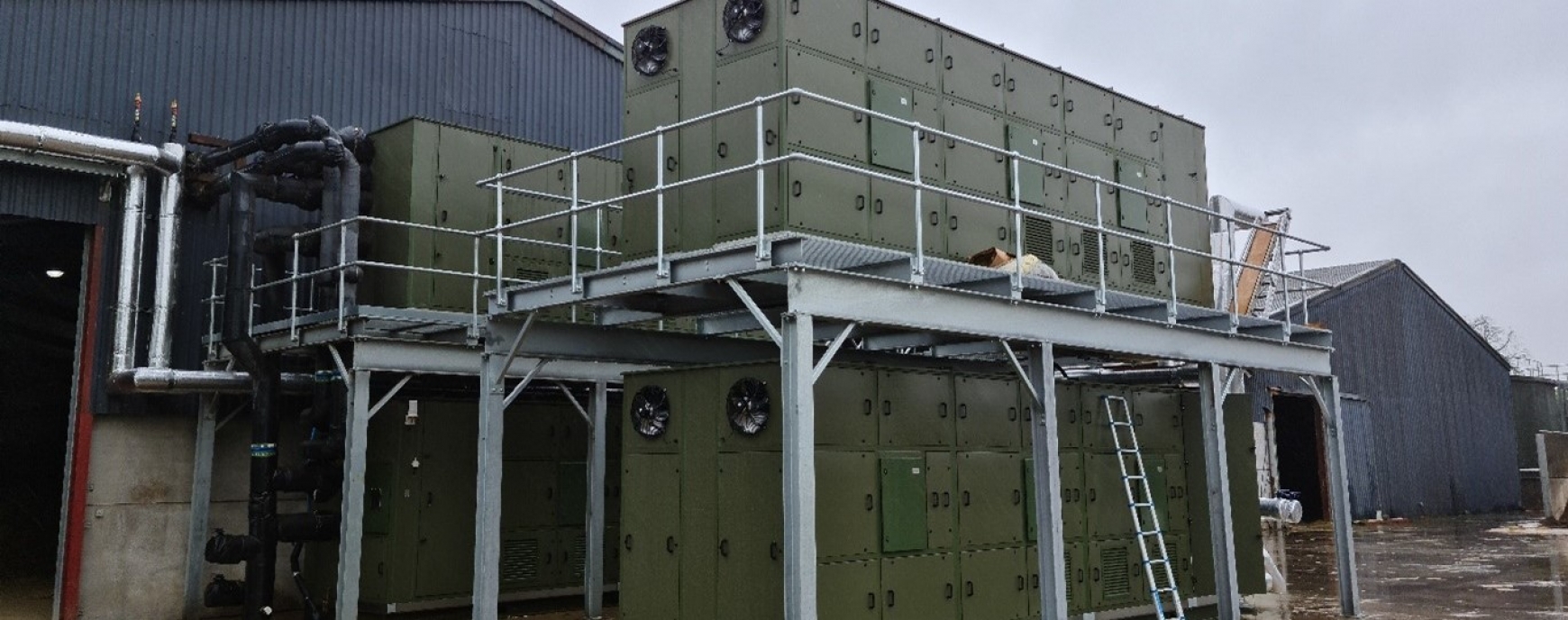Renewable technologies are increasing in popularity due to their cost saving benefits and low maintenance costs, but also the ‘green energy’ they produce, which is vital in helping to achieve the NFU’s Net Zero target of 2040. There are different renewable technologies available to install both on domestic and business properties and at NFU Energy, we have put together renewable guides which are filled with information and answers to all your frequently asked questions.
What is a heat pump?
A heat pump is a device that takes low temperature (low grade heat) and upgrades it to higher temperature (high grade heat). They work essentially by acting like a fridge or freezer but in reverse. With a fridge the inside is cold and the outside is warm, we want the inside of the building to be warm and the outside to be cold. Most heat pumps use a refrigerant which is pumped around a system of pipework from a heat source (air, water, or ground), to the area where heat is required. The low grade heat which is captured, is boosted by a compressor into a higher grade usable heat.
Benefits
Heat pumps are able to provide space and water heating without any fuel, other than the electricity to run them. You should expect to get three or four units of heat for every one unit of electricity used. This compared to an immersion heater where you typically get 1 unit of heat for 1 unit of electricity. The ratio of electricity consumed, to heat produced is known as the Coefficient of Performance (COP).
The UK is investing heavily in renewable electricity generation, which in turn is reducing the carbon intensity of the UK grid, this makes using electricity for a source of heat even more favourable. If you are able to power a heat pump using an onsite renewable energy source, then you are reducing your emissions even further.
If you would like more information on heat pumps, or if you have any questions, please call the NFU Energy team on 024 7669 6612.


